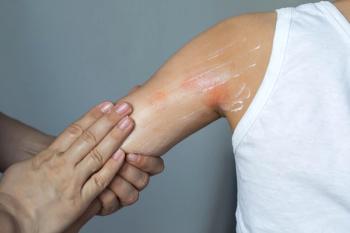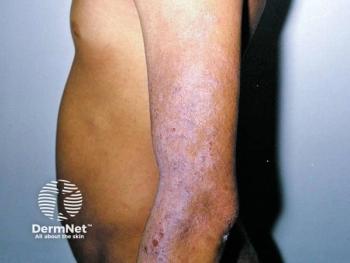
Is the dermatology textbook obsolete?
My electronic world observations were further influenced by experiences while visiting a resident-run dermatology clinic.
I am a baby boomer, but my children are millenials. My childhood was characterized by the race for space and the introduction of federal programs designed to encourage females to develop an interest in science.
One summer I received a position as a member of a National Science Foundation grant team to study DNA mutations in phytoplankton and protoplankton from exposure to copper nitrate in a small, newly created wildlife preserve in upstate New York. I was 16. My world was changed forever. Science captivated me from that point forward.
My children, however, are from a different generation.
What is it that characterizes the millenials? In one word, it is the Internet. My children are the first generation to grow up in the electronic information age, just as I grew up in the space age. What does this mean? This means that the Internet is a source of communication, entertainment, information and a research vehicle. My son brought home his books after the first day of school and I noticed that his book bag was empty. Where were the books? On a CD-Rom, of course. How does the electronic textbook affect learning? How does the use of the Internet as a research engine affect accurate data collection? What are the advantages and disadvantages of the electronic learning environment?
I think the answer to these questions is largely unknown. Just as I was an experiment in women scientists, my children are an experiment in electronic learning. I can already see some of the implications of how the electronic age is shaping my children's world. My son must submit all of his term papers online the morning they are due instead of placing them on the teacher's desk. The papers are immediately put through a plagiarism software package and two of his classmates have already been expelled from the special program for copying materials from an Internet Web site. Our encyclopedias are now used as dust collectors, since my children completely rely on Wikipedia Web site for all of their information. I tried to take one set of the dust-collector encyclopedias to the Salvation Army, but the donation site manager informed me that they were no longer accepting donated books!
In the real world
My electronic world observations were further influenced by experiences while visiting a resident-run dermatology clinic. We saw a patient with what appeared to be stasis dermatitis of the ankles that had been treated with a high-potency topical corticosteroid for one month without patient-perceived improvement. Quick visual assessment revealed the presence of brawny induration, but also an overlying eruption consisting of a serpiginous border studded with small pustules.
Further examination revealed the presence of extensive tinea pedis with nail involvement. I asked the resident to develop a differential diagnosis and he immediately went to the computer terminal and began a search of online textbooks to arrive at his list. He then returned with his list of possible diagnoses. I asked him why he went to the computer terminal instead of a textbook. He answered that it was faster. However, the site he consulted had numerous dermatology articles written by family practitioners and not dermatologists. As might be expected, his differential did not reflect an in-depth assessment of the patient's condition. And certainly, the simultaneous presence of tinea corporis worsened by the topical corticosteroid used to treat the stasis dermatitis was missed.
Obsolescence
Is the dermatology textbook obsolete? I think not.
A well-indexed book can help the reader pinpoint information quickly without having to sort through the 6.21 million English hits found when a Google search on the word "psoriasis" is undertaken. The exercise of flipping through a paper chapter on papulosquamous diseases helps the reader consider diagnostic possibilities that might not draw attention when endlessly scrolling through an online textbook on a dizzying CRT.
Yet, the electronic world is amazing. How rewarding it is to quickly survey the latest research in an area on a Medline search! The ease of downloading articles to read in your own study instead of driving three hours to the nearest medical library is a treat! The largest library stacks in the world are at your fingertips, even in rural areas of the United States.
Newsletter
Like what you’re reading? Subscribe to Dermatology Times for weekly updates on therapies, innovations, and real-world practice tips.












